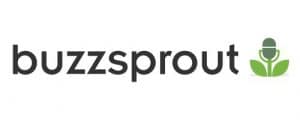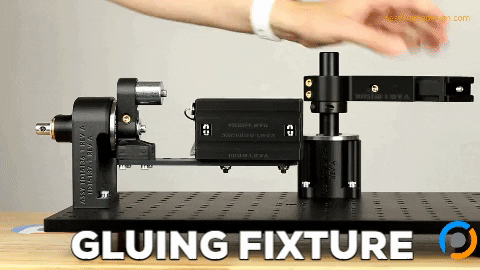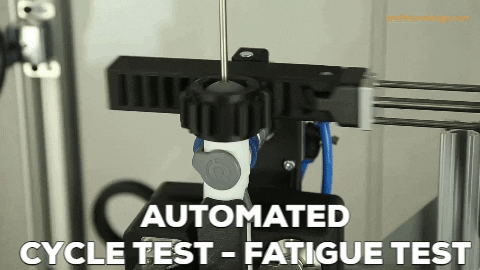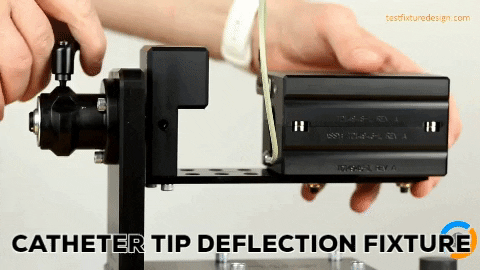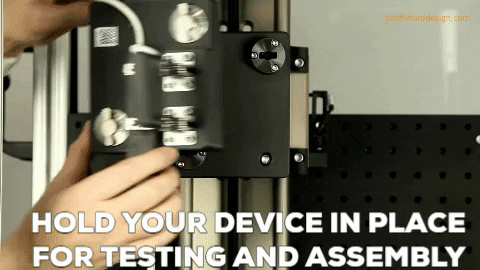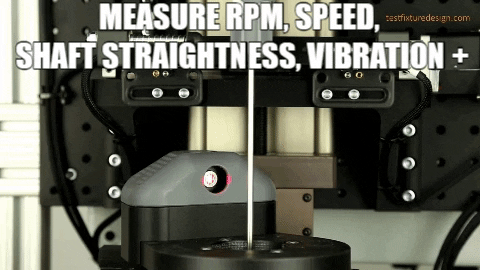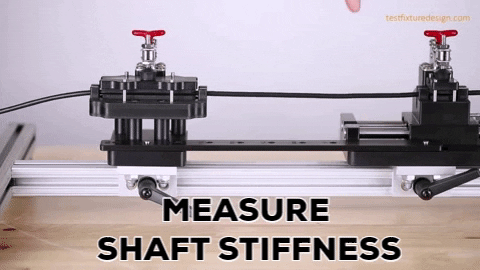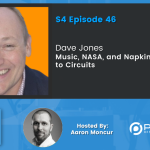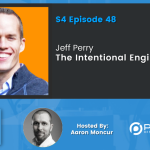S4E45 Jonathan MacWilliams | Career Planning, Metallurgy, & Dealing with Ambiguity
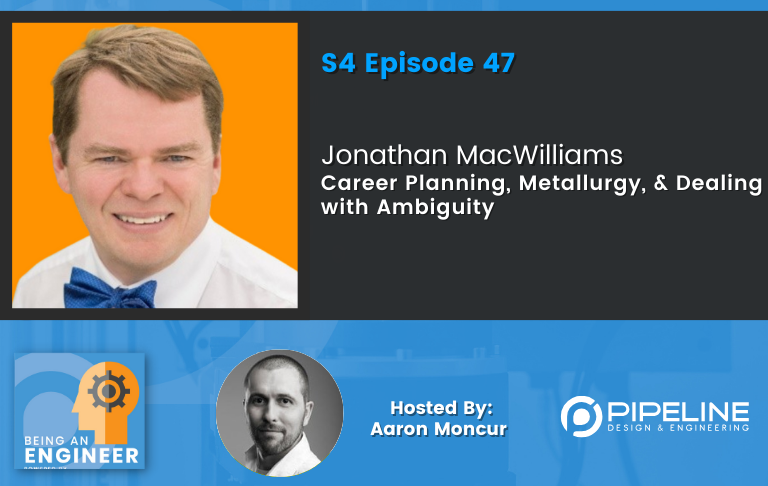
Who is Jonathan MacWilliams?
Jonathan MacWilliams holds a bachelor’s degree in metallurgical engineering and has held positions from metallurgist to distinguished engineer at GE to Norman Noble to Mert Medical and now Edwards Lifesciences, where he is currently tasked with developing technical leadership and mentoring programs.
EXPAND TO VIEW EPISODE TRANSCRIPTION
SUMMARY KEYWORDS
engineer, jonathan, metallurgist, engineering, problems, learn, ambiguity, team, people, process, metallurgy, edwards, mechanical engineer, thermite reaction, technical, distinguished engineer, experience, good, casting, recognizing
SPEAKERS
Aaron Moncur, Jonathan MacWilliams
Aaron Moncur 00:01
Where do engineers and designers at companies like BMW, NASA, and Bosch get custom manufactured parts fast xometry with xometry Anyone with a 3d model can get pricing and order parts thanks to xometry Instant quoting engine, access dozens of manufacturing processes like CNC machining, sheet cutting and fabrication, 3d printing, injection molding and more along with hundreds of materials, all in a matter of seconds. Check out xometry today at xometry.com. That’s XOMETRY.com xometry for big ideas are built.
Jonathan MacWilliams 00:44
I’ll tell you what my career plan was. I didn’t have one. All right. I did not have a career plan. It was it was opportunity, fear and survival. Any one of those three define my career.
Aaron Moncur 01:09
Hello, and welcome to the being an engineer Podcast. Today we are privileged to speak with Jonathan MacWilliams. Jonathan holds a bachelor’s degree in metallurgical engineering and has held positions from metallurgist to Distinguished Engineer at GE to Norman noble to merit medical and now Edwards Lifesciences, where he is currently tasked with developing technical leadership and mentoring programs. Jonathan, welcome to the podcast.
Jonathan MacWilliams 01:36
Why thanks for having me, Aaron. Glad seeing to be here.
Aaron Moncur 01:39
So I’ll start with the same question. I asked everyone at the beginning, what made you decide to become an engineer?
Jonathan MacWilliams 01:45
Well, that’s a Yeah, what? Well, I so I, let’s put a little perspective on this. So I grew up on a small island in the North Atlantic called Prince Edward Island. It’s the smallest province, Canada. And I didn’t have much, you know, I got was a farm boy, my, my dad worked for Canadian Broadcasting Corporation. I didn’t really know what an engineer did. You know, I had, I had heard that they were the guys that wore the White Helmets on the road crews. And they were kind of, you know, uppity and that sort of thing. But I really didn’t know much about them. And it came time for me to go to college. And my parents were like, oh, yeah, you’re going to college. Okay. And I didn’t know what I wanted to do. I knew I wanted to do something math and science. But nothing really resonated with me until somebody told me about engineering. He said, you know, engineering, you do the math and the science stuff, which actually do some good with it. I’m like, Oh, well, I’ll learn more. And next thing, you know, here I am enrolled in the University of Prince Edward Island’s pre engineering program. And I did three years of engineering there. And it was a general program. You know? Didn’t you did tell you that like you didn’t take it. You didn’t. You didn’t lock in on something until after you were done. Right. So I did pre engineering at UPI. And then I would transfer to either University of New Brunswick, or what was then known as the Technical University of Nova Scotia. I didn’t like Fredericton, which is where you NB was. So I’m like, Well, I’m going to Halifax to go to tons. And I figured, well, I’ll do mechanical engineering. And then I took dynamics. Dynamics is where the a separate out the people that can’t do mechanical engineering. So I was like, well, maybe an electrical engineer. And then I took circuits, and that weeded me out of electrical engineering. And I was like, Okay, well, civil engineering solids left. buddy of mine said, you know, there’s this thing called metallurgy. And I’m like, Oh, what’s that? And it’s like, well, the civil engineer designs the B. Yeah. But what if you could pick the metal so the civil engineer can make a smaller bead, and I’m like, Ah, that’s kind of a neat idea. I’m alright with that. And so we went to we went to the tour, you know, the tour of the school and one of the things they had us do was, or they showed us was the thermite reaction. Oh, you’re very familiar with the thermite reaction at all. Eric.
Aaron Moncur 04:11
I remember the name from college and that’s about it.
Jonathan MacWilliams 04:15
So the thermite reaction is brilliant Italian, tell you well, rails together right? On in rail lights, and basically, you just take, you take aluminum powder, and you mix it with rust, and you put a sparkler in it and you run. Right. And what happens is, is the aluminum extracts the oxygen from the rust and leaves the iron behind, and it fire and brimstone. It’s amazing. And they did one announcement. They did one of these in the parking lot. Like I’m all in. That’s what I want to do. And so thus I became a metallurgist.
Aaron Moncur 04:50
Okay, so that’s, that’s one of my questions is I don’t know much about metallurgy. And we haven’t really talked about metallurgy much on the show. Maybe one before, but this is a super open ended question. So feel free to kind of take this wherever you want, what what are just one or two interesting things about metallurgy that probably most other engineers don’t really know about? Well,
Jonathan MacWilliams 05:14
so metallurgy, metallurgy is that bridge between the mine and the machine shop. Okay, so the miners, the mining engineers will will will, will dig the ore and get it ready to ship to the metallurgist, and then the metallurgist venue is from, okay, you’ve gotten me some or you’ve refined it a little bit, I’m going to refine it further converted to metal, then convert that to a semi finished good, and then ship it to the machine shop. And then the mechanical engineer can take over and and, you know, machine, the stuff, that part of it. And the other part of it, too, is the metallurgist is the guy that can that can go in and help you when you have a mistake do so mechanical engineer knows all the mechanics and the dynamics and all that stuff that will anyway, if he can handle that, and then but sometimes things don’t work, right. It’s like this was supposed to work, but it broke. And the one thing that I my true passion in metallurgy is fractography and cellular analysis, because if you have a piece of metal that has fractured, give it to a metallurgist that’s got his wits about him. And he’ll be able to tell you why it broke. Where where the fracture started, and when it broke it with respect to your process. And it’s, it’s really important, because sometimes you make assumptions, oh, it broke because of this, when that wasn’t the problem at all. It was a low cycle fatigue issue. And you think it was an overload, but it wasn’t it was low cycle fatigue that eventually ended up in an overload situation. So you put a bandaid on this thing, and you don’t actually fix the root cause, which was what was causing that low cycle fatigue.
Aaron Moncur 07:06
So the root cause may not be some some fundamental issue at the foundry where this piece of metal was originally forged. Interesting.
Jonathan MacWilliams 07:16
Okay. Yeah. Yeah, it might be it might be, you know, it can be something in the process where or how this thing is being used that, that, you know, so subtle that you know, you the normal person than normal, the normal classically trained engineer may miss and that and you get the beauty out. Yeah, you can tease that out. And that’s the beauty of the metallurgist, right? That’s very cool. Yeah. Yeah, it’s a lot of fun. I really enjoy it. You know?
Aaron Moncur 07:42
So you mentioned this low cycle fatigue. I know, you just kind of threw that out there. But what what are some of the problems that, that you see in as you’re doing these root root cause analysis for for metallurgical failures?
Jonathan MacWilliams 07:58
Well, typically, when you’re talking low cycle fatigue is somebody who’s used a weld where they shouldn’t use a weld, or somebody’s used the weld and not done the full process that you need to do a weld, right? Sometimes certain welds are fine. If you fully heat treat them, right. If you don’t fully heat treat them, then it becomes a stress concentrator. And next thing you know, the normal vibratory cycling of the of the system, say an amusement park ride would be fine, except you didn’t post weld heat treat it. So now that well, this is stress concentrator. And next thing, you know, fracture starts and once it starts, that’s the end of the that’s the end of the day, hundreds stay. And so that’s why we put a lot of emphasis on you’ll hear, when, in certain aspects, you’ll hear about people saying, Oh, don’t weld on this, like you ever see. You’ll see that on a carefree. It’s like do not weld on that car frame. Like certain car frames and things they’ll be like, Don’t weld on them. And the reason is, is because you can weld on them, but you have to post weld heat treated in order to make sure those people want thing to do. No, especially if you’re restoring a car or something. Sure. Yeah. Okay.
Aaron Moncur 09:13
Well, what’s what is a? What are the metallurgical problems that you solve that you’re most proud of?
Jonathan MacWilliams 09:20
Oh, wow. You know, I don’t think I can put I, I can’t put my hand on on a single type of problem. You know, I really enjoy just the the fact that as an engineer, our job here and your job and my job, our job is to solve problems for people that don’t know how to solve them themselves. Right. So you are your mechanical engineer, I assume. And so you can solve those sorts of problems. I’m a metallurgist, so I’ll solve problems related to metallurgy. And when somebody’s got a really bad problem, And they’re like struggling and they’re slamming their head against the wall. And I’m like, hold on, slow down, let’s back up and just look at this whole thing. And when I can say, you see this little detail here, I know it doesn’t mean much to you, but it actually max. And, and you know, you didn’t know. And that’s okay. Let me educate you. And if I can take, I can take a half an hour, an hour on a whiteboard and show somebody why they’re having their problem. And they get it, and they get it. I’m so happy, right? So that’s really when I get fulfilled, it’s like, okay, you understand where I’m at, you understand the problem. And now you can go and fix it. And that is probably the most important thing I can, you know, the most enjoyable thing of a part jobs.
Aaron Moncur 10:50
I fit, I’ve often defined an engineer as a professional technical problem solver. And I think that, at least me personally, I find so much joy in, in helping a person understand how to solve a problem themselves. And I wonder if that’s if there’s something about that that’s not unique to engineers. But do engineers take more joy in helping people solve their own problems, then? I don’t know, some other profession. Have you had any experience with that? Or have you seen any patterns or trends or even just with your own experience? Notice that one way or the other?
Jonathan MacWilliams 11:34
I don’t know, if it’s unique to engineers, I think we all want to help each other. Right? I think overall, we were all everybody’s good. We all we all want to do the right thing we all want to be. We all want to be helpful and be useful. And I don’t think that’s unique to engineers. I would argue that anybody is like that. Deep down, you know, maybe maybe they’re blinded by money. And they’re, you know, putting on airs and stuff. But I sit, I hold. I’d like to think that everybody has that overall inherit want to help people. I hope so I hope I’m right. I could be wrong. But part of the human
Aaron Moncur 12:15
DNA, right. Yeah, exactly. What makes our species who we are, I mean, we got here by helping each other. Right. If we’re tearing each other down, every hour of every day, we wouldn’t be where we are right now. No,
Jonathan MacWilliams 12:29
I I agree. I agree. Sometimes. Sometimes we do tear each other down. Sometimes we do. But I don’t think it’s intentional. Well, I don’t think it I think it would be different depending on how the interactions happened.
Aaron Moncur 12:44
How’s that? Yeah, context plays a big part and a little deep
Jonathan MacWilliams 12:48
here. Yeah.
Aaron Moncur 12:51
It is. It is. But hey, it’s the end of the day in here. Yeah, deep stuff. Oh, yeah. Have you followed Tesla’s Giga casting at all? You know,
Jonathan MacWilliams 12:59
just a little bit. Just a little bit, you know, it’s funny, I worked at a foundry for for five years, making investment castings. And so I got to learn, I got to learn some from some very talented people a lot about castings. And when I just looked at what he was trying to do with this Geka casting, and I’m just like, you know, there’s a lot to overcome there. Because you’ve got, you’ve got thermodynamics, so you got thermal transfer issues, you’ve got to get that metal to where it’s got to be before it goes solid, right. So you got alloy considerations, because, depending on your alloying, you can actually keep you can keep a casting slushy for quite a while slushing Yeah, so you can, and if you’ve got enough force behind it, you can just, you could just fill your cavities. And actually, that’s what you would want. Right? You would want it to be slushy, so that you don’t have too much thermal transfer, to get it to solid, right, it’s the more thermal transfer, you’ve got the more possibility of shrinking and cavities and that kind of that kind of stuff. And so it’s a hell of a challenge, you know, especially to cast something like he’s casting and then think about it from a tooling standpoint, you’ve got all these poles, you know, like, that thing has got poles and they have to work every time to perfectly. And, you know, Aaron, you’ve probably worked with some really good tool makers in your time. But a really good toolmaker is they are there. They are the most brilliant individuals, I think, in our society have really good toolmaker is, you know, we I feel often we don’t give toolmakers the credit that they are due because those individuals can visualize a 3d situation, analyze it and say, Okay, I’m going to build a tool right here like this, and I’m going to, I’m going to make my cuts here and I gotta machine it perfectly. So It fits in the slot. And, you know, we would say, Oh, well, you just do that with a CNC machine. You know what? Yeah, you can, if the CNC machine helps, it makes things easier. But still, at the end of the day, the craftsmanship that a good tool maker can build. And when I, when I see that, that casting that that that Tesla is making, I’m just like, Whoa, I would have loved I just, I would love to have like, an hour just to just watch that tool move, moving. And to see how the toolmaker put it together.
Aaron Moncur 15:34
The I would love I would I would pay hundreds of dollars to watch a documentary of of how that process was developed. I think it’d be fascinating. Yeah.
Jonathan MacWilliams 15:43
You know, and when you think about what what Elon is doing with the Gigafactory, and with the Giga casting and all that, and you compare it to what we did as, as a, you know, it’s North American trade, and you’re Canada and the United States during World War Two, and the subsequent in the 60s, and some of the stuff that those guys did, guys and gals did with like, stuff, like slide rules, and, and, and common sense and good engineering, and they it all and, and they just they didn’t, they didn’t look at it as like, oh, we can’t do this is too hard. They just said, Yeah, we’re gonna do it. We got to do it, or we’re done. You know, so we’ll figure it out. And it’s so impressive. Right? It’s so impressive. And I think one of the things that that Elon Musk has done is he’s captured that, that can do attitude, I don’t care, you know, what the cost? He oh, we’re gonna get her done. And then we’ll, we’ll reap the benefits later now. Yeah. You know,
Aaron Moncur 16:40
we’ll speak at a process development, that is something else that you have quite a lot of experience with? Do you feel like it within the umbrella classification of engineer or even mechanical engineer? Is one engineer as good as the next when it comes to process development? Or is there a specific kind of like a subset of skills that makes a process engineer? Particularly good?
Jonathan MacWilliams 17:10
No, I don’t think so. If you had asked me 10 years ago, I would have probably had a different answer. But I think, I don’t think the education, right, the education that we go through, right. So our education, we learned how to solve problems, right? I learned how to solve problems in metallurgy. You learn how to solve problems in mechanical engineering. But I think, I think for a process engineering standpoint, it’s a mindset. Right, like, I’m a metallurgist, and I’m solving problems in areas of chemical engineering and electrochemical engineering. I don’t know. Like, I was never classically trained in those yet. Here I am. Building I think about it, like a neurological model, like, you know, the, the AI models where you have a series of inputs and a series of outputs. And then you have some, you know, neurons in between, which I think that’s just fascinating. Everybody’s afraid of it, but they shouldn’t be. And so you put the inputs in and you compare it to the outputs, and you build the model in between the difference between AI and FBA is FBA, you know, the math, AI, you don’t know the math, and it just makes up the model. And so I’ve done that for some of the processes like electropolishing. Right, I’ve got a mathematical model in my head, that has no science behind it. It’s just my we call it intuition. Right. And, and, and I would argue that any engineer can do that. You don’t have to be mechanical, heavy metal, or show heavy electrical engineer, you just got to have the passion and be open to the prospect of, well, I may not understand the science of what’s going on, or all of it, right. Key statement there, you got to you got to understand science pitch, you don’t have to know it all. To be a process engineer. You’ve just got to be willing to to watch and learn and understand and build your own model of what the process is doing. That makes sense. Yeah. Does that make sense to you?
Aaron Moncur 19:08
It does. It does. I agree. I think that there is a particular mindset that does especially well with process engineering, and I think they’re very closely related to r&d engineers. I think it’s kind of the same mindset, in my opinion, that mindset of of giant creativity, right, and a desire almost, almost an inclination towards trying things with the expectation of failure, right? Whereas Oh, yeah, there’s they just want to do something that they know is going to work.
Jonathan MacWilliams 19:42
One of one of the things I tell the young engineers that that I’ve worked with over the years, so like, if you’re not, if you’re not breaking stuff, you’re not trying hard enough.
Aaron Moncur 19:51
Right? Yeah. If you’re not breaking stuff, maybe you should be a sustaining engineer. Yeah. We don’t we don’t want our sustaining engineers breaking things.
Jonathan MacWilliams 19:58
Well, you Yeah, but even Steve, Well, I agree with you and I disagree with you. Sometimes. Yeah, sometimes the process, a process is never fully baked. Right processes never fully baked and stuff happens. And I think a sustaining engineer, you know, should go out there and, and be like, my process is broken. And I don’t know why I’m going to try this. And if I break it more, uh, well, it’s still broken. You know, I think I think in troubleshooting, you should be allowed to break stuff, and you should be given the freedom to make mistakes. And and, you know, it’s, I think it’s important. I think a sustaining engineer has just as hard of a job as a as a guy developing the process, because I live in both worlds. You know, in
Aaron Moncur 20:44
my opinion, that’s where the fun is, right? Being able to break stuff and try new things and see what happens. Yeah. Well, speaking of processes, here’s my shameless plug for my company pipeline design and engineering. Let’s not forget that sponsor of the being an engineer podcast, we are referred to as integrators, often machine builders automation. And certainly, that’s what we do. But really, we’re I think we’re process developers, that’s where our core strength is. And then we’re very good at building automated machines, we can build the automation around said processes and put it together a complete production automated system. But let’s move on with Jonathan McWilliams. Today, Jonathan, your role now is distinguished engineer, that’s your role title. What what does it mean to be a Distinguished Engineer? That’s
Jonathan MacWilliams 21:34
a great question. When you find out let me know. Yeah. So at Edwards, right, they they have tiers of engineers, right. So I am engineer five, I think, yeah, level five. Right. So I got distinguished and senior distinguished. So you know, I think I look at at a distinguished engineer as has a recognition of one my education. Right, and more importantly, my experience. Right. So I’ve had experiences in foundries I’ve had experiences in medical device, I got over 20 years now in medical devices. And and specifically in Yeah, you know, I did the classic thing that they say never to do, I pigeon holed myself into cylindrical laser cut electropolished medical devices. That and niche, it’s very, it’s a very niche thing. Right. And I, I’m glad I did. And, and I’m sure I will continue for many years to come to still be cylindrical laser cut your polish medical device. And frankly, I’m okay with that. Because, you know, I go to sleep at night, no, and I’m doing something good. And I’m helping somebody who can’t help themselves, right? Especially a patient, you know, they can’t, you know, a patient can’t, you know, can’t fix themselves. And so I do a little bit, you know, every day, and I help somebody have a better life. And that’s, you know, so I think I think the title is just recognition of, of my experience and my passion around doing doing what I do. I think that’s not the only way I can describe it. That’s
Aaron Moncur 23:34
great. What you can’t get better sleep than that. Can you go to bed at night know that you’re helping people? That’s right. Back to that human DNA? Yep. Technical responsibilities are not the only thing that you’re focusing on these days. One of your core focuses is developing technical leadership and mentoring programs. What have you found or maybe a few of the biggest obstacles that engineers encounter when they’re trying to develop those those leadership skills?
Jonathan MacWilliams 24:05
Well, okay, that’s a good bet. That’s a great question. So let’s, let’s just be honest, yeah. Aaron, you and I went to school, we were trained to be engineers. We weren’t trained to be people, people. We weren’t trained to manage people. We weren’t trained to lead, we were trained to get our calculator out and calculate the moment of inertia about a beam, you know, 12 feet long for whatever you write, or in my case, how do I how do I melt 17 For and not kill everybody in the room? Right? Little things like that. But we were never trained on being managers. We’re never trained to be leaders. None of that happens in an engineering degree. And I think that’s the biggest, the biggest hurdle we have to overcome is because we’ll get high enough up in our career. Eventually, somebody’s gonna say, you know, Jonathan, you’re pretty You’re pretty nice fella. And you can do some great engineering, why don’t you take over this team and lead them? It’s like, well, wait a minute, you said, you said, I’m a nice guy, and I do good engineering. And now you want me to leave? Like, that’s a different job description. What do you do it? And some people, I think the overall, what’s the word I’m looking for the overall prevailing thing is like, Oh, well, that’s what you just do, you get to a point. And then you got to, you got to jump over to management, either you can’t be an engineering or take you driving home from work, take that calculator, chuck it out the window when you’re going over a bridge, right? Because you’re never used to that ever again. And there’s a certain amount of truth to that. But some of us aren’t necessarily good managers. And I think the biggest hurdle that you’ve got to deal with is once you in the Manage management space, it becomes ambiguous. All right, what used to be cut and dry, one plus one equals to right, or the moment of inertia on this beam is why, right? That’s the longer the case it becomes ambiguous, because now I’ve got a strategy and I’ve got, well, I got to do, this is what I have to get done. But if I make these person do it, I’m going to want to hurt their feelings. And and and if you can’t, if you can’t deal with that, you’re not going to be an effective manager. Right? If you’re, if you can’t cope with the people side of the equation, right? You’re never going to be an effective manager, I will say that till I’m blue in the face, alright, because you will management and leading his is 50% people and 20% striker 50% strategy, in my opinion, I you know, and you know, as an engineer, if I become a manager, my job by it, the reason I have an engineering degree is not to engineer, but to understand that the issues that my team is having, so that I can have a frank and honest conversation with them and say, Okay, this is how we’ve got to get through this, you know, you need to do these engineering tasks, and I understand what you have to do, because I’ve done it too.
Aaron Moncur 27:08
That does make sense. You and I talked a little before the show about about feelings and how engineers aren’t necessarily the most comfortable with, like, expressing our feelings and talking about feelings. How, how does a certain level of comfort with one’s feelings correlate to the ability to be an effective, respected, tactical leader?
Jonathan MacWilliams 27:38
I think it’s just I think it’s extremely important. It’s interesting. So where I worked out at Edwards it was recognized that the technical, technical folks weren’t necessarily staying technical and they were moving over management morals. Because there was a certain there’s a certain belief system not as I would say, It’s doesn’t matter what company you’re in, change the name from Edwards to change a to, you know, Boston Scientific or General Motors, it’s like, yeah, you’re gonna, you’re at a peak out in acapella because you’re not going to be as successful as if you went over to management and let let a team and had a had a big impact. There may be some truth to that. But at the end of the day, we got to be happy with our work. Right? We have to be happy with our work. And so even as a technical leader, right, so I’ve been tasked to do this. And I’m like, Well, I don’t I don’t know, that touchy feely stuff. I don’t I don’t know what that is. And so it forced me to, to learn about stuff that I had just ignored, for lack of a better, you know, and HR has those presentations here, and you got your own company. So you can you can set your own toll. But when you’re at a big company, and HR comes in, and he’s like, Oh, we want you to do this, this and this about your career planning. I I am not kidding. He was like in in Charlie Brown, when the teacher starts talking. Wow. Yeah, that’s all I heard. And I’m just like, Yeah, whatever, just get me through this. So I can go back and do some metallurgy. And if I hadn’t known then what I know now, I would have had a different approach to a lot of that training that I went through. So I find myself actually going back and redoing it with my eyes open. And my end my my eyes open. And my AOL my heart open, I guess you could say Right, like, like, just lay it on me because I’ll figure I need I need this. I need the skills. Even as a technical leader, I need the skills because I’m no longer engineering it for the sake of engineering. I’m engineering for the sake of helping a younger engineer come up and be a stir wrong and a contributing member of the team. Recognizing that you have to do that he’s important. Sloths data, sometimes we get locked into our, into our head that we have to, you know, either be a manager or be or, or stay as an individual contributor, but there is actually a shade of gray in the middle layer. And that’s where I’m trying to live. Alright, because I enjoy teaching.
Aaron Moncur 30:23
For the sake of other engineers out there, you mentioned, if you had a chance to go back and listen to some of these HR presentations, we don’t even have to classify it as HR presentations, but maybe some of the soft skills or the leadership things, there you go, what are what are two of those things that you recommend? Engineers, maybe especially younger engineers, actively go out and try to learn and have experiences with?
Jonathan MacWilliams 30:51
Well, like career planning, right? So the career planning thing, is probably the biggest, the biggest thing I could I could talk about, because I, I’ll tell you what my career plan was, I didn’t have one. All right, I did not have a career plan. It was it was opportunity, fear and survival, right. Any one of those three define my career? So, you know, I got laid off from the foundry. Oh, what am I gonna do? And next thing, you know, I got a gig making medical devices. And, you know, and then I got an opportunity to go to a bigger company, and I just, like, no, plant, none. And I’m happy to admit that. If I knew then, what I knew now, one of the things I would have done is I would have taken my career plan and taken an approach to not what technical skills do I need, I have the technical skills, right? They were if they were in, in an in viewed upon me during my degree. So I have the technical skills. But what I didn’t get during my degree was soft skills, like, Hey, here’s how you deal with a tense situation, please don’t escalate it like you would be apt to do because of your personality. Instead, take these approach. Add. And if I hadn’t known that, I think of all these times where I got into battles with people over stupid stuff, and I’m, you know, I could handle that so much better. And when I say that battles with people over stupid stuff, that’s all very long ago, like maybe two or three years ago, it on me. And I think it’s important that we that if there’s one thing I could tell young engineers, like, if you get an opportunity to learn any soft skills, take it at all, especially if the companies pay it for one, you’re gonna get paid to do it, right. So let’s just let’s just call that out, right? You get paid to get do it. You don’t you can you can you get, you know, they understand that you’re gonna be doing this training. So the deadlines will be somewhat flexible. But you actually might get something out of it. Something that you hadn’t thought of. So go in there with an open mind and, and be ready to absorb something that you weren’t classically trained on?
Aaron Moncur 33:12
What has been one of the most rewarding leadership experiences of your career to date?
Jonathan MacWilliams 33:17
Ah, well, you know, I’ll tell you, I fell victim to over the years being a Jonathan, you’re, you’re a pretty good engineer, you got your you got your crap together very white, you go and lead this team. And I’d be like, I guess I’ll you know, you know, you know, not realizing what I didn’t know. And so I take these leadership opportunities, and they were awful. They were awful. absolutely atrocious, all for you,
Aaron Moncur 33:46
or for your team, or both. But especially
Jonathan MacWilliams 33:49
for me, I have a bit of a, I have a bit of a strong personality, you might have noticed, and but especially when things get ambiguous, I don’t handle ambiguity very well. Right? He just got thoroughly disagreeable. And to the point where, when I came to Edwards, the same thing was starting to happen. And I pulled my boss aside and I’m like, listen, I see where this is go. And you’re thinking, Oh, put me into into running this. This this part of this facility? Yeah. Oh, yeah. Don’t do it. It’ll end badly. And I don’t want to do it. Right. And, and so here, I am, like, okay, you can stay over there. And, and, you know, people will leave you alone. But I realized that was mistake too, and I was given an opportunity to, to pursue this technical leadership thing, which forced me to interest be introspective, and realize that I couldn’t handle ambiguity. Alright, so. Okay, I’m 51 All right. 50 at 50 I figured out I couldn’t manage ambiguity. Think about that for a minute, Aaron. Alright, so I’ve been practicing engineering for almost 30 years. Should I just now realize that I can’t handle ambiguity parry? Well, that’s half the battle
Aaron Moncur 35:05
that makes me feel better about myself, Jonathan. You know, I feel like I’m a slow learner, like, wow, I should have realized this about myself 20 years ago. So I appreciate your candor and your vulnerability. Yeah,
Jonathan MacWilliams 35:17
much. Oh, and so once I recognize that I had this issue, I can vocalize it. And so when I was interacting with people, and they were like, presenting me with, with issues, and I could tell them like look, and then the if they don’t handle ambiguity very well here. So I’ve got to, I want to count on you to help me get through this decision making process that we’ve got to do. And so I turned it from, from Jonathan, the decision maker to Jonathan, the vulnerable guy that has a lot of experience, can you help me work through this, and it actually has been more fruitful than just being sitting back and being the Oracle, this is what you will do. And instead of trying to take the let’s let’s work on this together, because I can’t handle doing this by myself, and the other, the team that I’m working with the other engineers, so you’re like, Okay, we get it, we understand, let’s work on it together. And they actually appreciate the fact that I’m, I’m not perfect. And I appreciate the fact that I’m not perfect, you know, but there’s
Aaron Moncur 36:21
a book called The culture code, wonderful, wonderful book, one of the best books I’ve ever read about building a team and a culture. And the author investigates a myriad of different situations and teams and, and circumstances. And he boils it down to three pillars that are most influential in creating a culture of positive culture. And one of them is sharing vulnerability. So I thought that was pretty amazing, you know, the, all the things that he studied, sharing vulnerability was was one of the three most important factors that lead to positive, meaningful cultures in a, whether it’s a company or a family or a sports team, where I believe
Jonathan MacWilliams 37:08
that I believe that to be true. Especially with with how impactful it’s been for me to admit where I’m weak. It’s, it’s some, yeah, you got to admit where you’re weak? Yeah.
Aaron Moncur 37:22
Well, on the subject of growth, I mean, you’ve accomplished quite a lot in your career already. And, of course, there’s there’s always more that we can learn and more than we can grow what’s, what’s an area right now, you mentioned, recognizing you don’t deal well, with ambiguity. Maybe beyond that, what what’s another area that you’re trying to improve yourself? Right? Well,
Jonathan MacWilliams 37:45
right now my focus is, is on the ambiguity. That’s a big thing. And it has funny you mentioned that so at at Edwards, they focus on Oh, what is there, so Korn Ferry, it’s a it’s a consulting firm, and they have these 30 some different aspects of of life and business, right? It’s like managing ambiguity, and, you know, driving the team and a bunch of these key words, you know, the, almost the Charlie Brown, wah, wah, wah, all right, and I’ve stopped doing the wall wall wall, and I’ve kind of looked at them, and they, and it’s really nice they give you, they say they give you the topic. And then they tell you, if you’re good at this, you exhibit the following behaviors. If you’re bad at this, you exhibit the following behaviors. And if you’re really, really just too good at this, and you’re overusing it. These are your behaviors, right? So the first one was managing ambiguity. And I’m working on that right now. And and I’m actually they’ve started the process of forcing us to, you know, be introspective yet again, because it’s coming up on the end of the year. And I literally just got the email, Hey, it’s time for you to take a look at what what you want to work on for next year. So I honestly can’t answer that question right now, because I’ve been so I’ve been so focused on on on this component. Now, I haven’t really thought about anything else.
Aaron Moncur 39:13
What are some ways that you’re going about working on this issue of ambiguity help us, maybe walk us through your process and in hopes that maybe that might inspire? Well?
Jonathan MacWilliams 39:23
Because I’ve recognized, that’s half the battle. Once you understand you have an issue, that’s half the problem, or half the battle? Because now that I’ve understood now that I understand it, I Okay, I’ve got a problem with ambiguity and when I see stuff becoming ambiguous, I can be like, I can hesitate for my gut reaction, you have that guttural reaction, right? Like I am going to, you know, like, you’re going to say something that you may regret. Because you’re reacting you’ve got this this fear in you of like, this is ambiguous. As I’m starting to be ambiguous, this is ambiguous. You don’t know the answer, you have to have an answer. Right? Because your your, your Jonathan, the 30 year veteran engineer, 27 years, whatever it is, like, you have to have an answer. If you don’t have an answer, why are you here? Right? So I’ve got to take those gut instinct feelings and and suppress them down so that I don’t give that passionate, you know, snap. Not necessarily politically, not politically correct, but not tight, that unkind response, and instead, step back and say, Okay, thanks for getting ugly, I need to take a break here. And, and, to a certain extent, vocalize that to whoever you’re interacting with, it’s like, okay, you know, things are getting a little are freaking out here at all and, and be able to say that, and actually, it really helps, it really helps. Because the other part is like, oh, okay, I get it, I see where you’re at. And then we can kind of, they can help massage the conversation so that I can start to, you know, and I can ask the right questions, and you know, step back, and I think, I think that’s, that’s probably Yeah, half the battle, you need to know where you’re weak, you need to be any to the enemy, know where you’re weak, admit where you’re weak. And then understand when you get into those situations so that you don’t do something dumb.
Aaron Moncur 41:26
I love the way that you put that. It makes me think of, we have some tenets here at pipelines and philosophies, right, that we try to live by, they’re hanging up on a wall, there are I think we have nine of them, or maybe 10. Anyway, one of them is take what’s on the inside, put it on the outside and talk about it. And I’ve found this to be so I mean, it’s exactly what you were just saying, you know, it’s recognizing a feeling that you’re having, and then expressing that feeling. And just just the other day there was there was a minor concern with one of our team members here. And I was thinking to myself, man, what am I going to do about this? How am I going to approach this? And I thought to myself, Oh, it’s the tenant, take what’s on the inside, put it on the outside. So I just approached the team members, and hey, you know what, I’ve got this mild concern. I think we should talk about it. What do you think? And we had a great conversation about it, you know, just getting that out there and into the open is super, super helpful. And people really appreciate that.
Jonathan MacWilliams 42:24
Yeah, you you know, I think I think you’re right. Yeah, sometimes you just got to be you just got it. Talk. You know, I think sometimes we make things we make things too complicated. You know, we put on our little our where Ken Ken doll or a Barbie doll. You know, like, we’re plastic and we’re perfect. You know, we put that on, you know, we have our synergy and stuff. And sometimes I think we just need to have a frank conversation. And I think you should be allowed to have a frank conversation. Not insulting now, Frank doesn’t mean insulting Frank doesn’t mean you know, hurtful. We don’t want to hurt each other. Yeah. We’re, we’re all in this together. Right? We’ve all got a job to do. And we want to make the world a better place. And so, you know, if we’re not seeing eye to eye, well, let’s let’s talk about it. Maybe we can figure things out work together and solve it. And I I’ve taken that approach, and it’s helping me.
Aaron Moncur 43:21
And in fact, I think that when you’re having those frame conversations, it it calls for being extra respect. Oh, and extra, kind and polite, right. And that gets down to just the words that you use just lots of pleases and thank yous and kindergartens skills, we call them sometimes. Yeah, I think that people really, they appreciate that. And when you’re feeling that, that that anxiety or frustration boil up inside of you, and you’re not sure how to handle it, that is exactly the time when you just you take what’s on the inside, you put it on the
Jonathan MacWilliams 43:56
outside, like bow are gonna keep that I’m gonna use that.
Aaron Moncur 44:00
It was passed on to me by someone else. I take no credit for it, but I sure have found a lot of value in the few words
Jonathan MacWilliams 44:07
there. You know, and and it comes back to Yeah, you just gotta be nice to each other. Hey, we’re not trying to 99% of the time. We’re not trying to hurt each other. Anything that does become a zip, so come across as hurtful. And my experience. It’s unintentional.
Aaron Moncur 44:28
Totally. Yeah. All right, Jonathan. Well, I’ve got one more question for you. And then we’ll wrap things up here. Specifically within the context of your role as an engineer, what is one thing that frustrates you? And conversely, one thing that brings you joy?
Jonathan MacWilliams 44:44
Well, it’s the same thing, if you can manage that. So you if you think about this, Aaron, we are standing on the shoulders of giants, right? There was metallurgists that came before me that spent their entire career working out something? Let’s take. So Leonardo EULAR, right? Yeah, he is EULAR you are doing this YouTube because he’s the guy that figured out the moment of inertia calculations. And all those formulas they do use that you have memorized. And you can just whip them out as as, as mechanical engineer a. Yeah, actually, yes.
Aaron Moncur 45:21
Everyone out there I have them all memorized. We’re not a percent. But definitely
Jonathan MacWilliams 45:25
that was it. That was his life’s work. Working on those equations, say quite a few other things, right? You, and then you we just use some as routine. Right? They’re just routine for us. Right? So we’re standing on his shoulders. And absolutely, what frustrates me is the old engineer, right? There. They might be listening. They know who they are. All right, I was one of them. And we’re just like, you young guys, you don’t know what you’re doing. You have punk kids, you know, your education site, whatever, you know, get out of my face, get out of my office, go learn something come back. Right. We’ve all know we’ve all met that engineer, right? We’ve all met him or her. And that person, that person, I was I was going down that road, I’ll admit that. I was going down that road. And then they asked me to be technical leader. And I started to really think things through and I’m like, oh, geez, don’t do that. Don’t do that. So that annoys me. When I see somebody behaving like that, that annoys me. But on the same token, however, that if that same engineer is just like, you know, like, you’re here, alright, so I graduated 1995 error. Right? So my software revision is 1995. I have somebody that just joined my team. Or I say my team, yeah, my team, why not? It’s my team. They’re all my peeps, right? They’re all my friends. And they’re all good engineers, right? Well, she just joined the team. She graduated in 2002. So her software revision level is 2002. Okay, now, what we forget, as, as the version 1995, we have certain sub routines, certain things that we learned, like, you know, I learned about, you know, metallography, using optical microscopy and how to prep those samples. Well, version 2002, they’ve deleted that sub routine and replaced it with something much more current and much more effective. Right? And so when the old 95 guy, yeah, oh, Windows 95 over here says, Well, you should be doing you should be using hyperterminal. And they’re like, What can we do old manually, we we’ve read graduated to something better, and we’ve got Windows Explorer here, or whatever. And it’s important as as, as we get older, you know, we need to understand that the shoulders that we’re standing upon, eventually we become the shoulders. And we have to pick those young engineers up, put them on our shoulders, and push them up so they can be more successful than we are. Right? At absolutely critical. I don’t care who you are. I don’t care what kind of engineer I don’t care, anything. That is our job. Eventually, we get to a point where our job is to help a young engineer succeed, no matter what the cost.
Aaron Moncur 48:17
I love that, you know, it demonstrates a high degree of just caring and thoughtfulness. And honestly, it reminds me of being a parent, right? We just we want our kids to be better than we are. And that’s just an indication of care and love for the people that we’re
Jonathan MacWilliams 48:34
- Plus, I can’t retire if I don’t teach them everything. I know, I can’t retire. Right? Yeah, good point. No, but I think it’s important. And I think, you know, so like, when I can, when I can push some some of my knowledge I so I’m at version 9095 with this huge database. If I can take some of my database and copy it to version 2022. Then I’ve done my job. I’ve done my job, right. That’s, that’s it in a nutshell, like we as as seasoned engineers, we were taught when we were at one point, we were those young engineers. And somebody took us under their wing, be that a professor or whatever, and they said, check it out. This is what you got to do. And we foundered and we made mistakes, and and the OH and and and some of the guys would laugh at us and say you’re dumb, but a lot of them didn’t. And a lot of them got it. They’re like, You know what, you just learned a valuable lesson, son. And you’ll never do that again. And I take the I take the approach of you know, you need to learn and I’m here to help you. And I want everybody to do that. I think everybody that’s listening should should just think about that for a minute and remember, they were somebody that helped them and It’s always time to get back.
Aaron Moncur 50:01
I love it. What a great message. Jonathan, this has been such a privilege and a delight talking with you today. Thank you for the stimulating conversation and the wonderful message that you’ve shared with all of the engineering listeners out there that community out.
Jonathan MacWilliams 50:15
Thanks. And listen by. Thanks for having me. I really appreciate it.
Aaron Moncur 50:18
You’re so welcome. How can I mean after listening to this I, I bet there are going to be some people who would love to talk with you one on one. How can people get in touch with you?
Jonathan MacWilliams 50:28
Ah, probably the best way is to find me on LinkedIn. I’m know I’ve no doubt, Aaron that somebody that’s listening to this will be able to find you on LinkedIn and find me yours. However, sometimes I can’t find people on LinkedIn. The other way to get me if you really, if you can be patient, let me wait through my inbox is by email. It’s Jonathan.Macwilliams@gmail.com. And that’s Jonathan JONATHAN. And MacWilliams with Mac people forget that. The A star Yeah, yeah, yep. So you know, you can send me an email, no guarantee on the email because I was just looking at it in this like, wow, I’ve got 2512 100 emails in my inbox.
Aaron Moncur 51:17
All right, LinkedIn, it is LinkedIn. And it’s yeah. All right. Well, Jonathan, thank you again, so much for being on the show.
Jonathan MacWilliams 51:24
I really appreciate it. Aaron. Thanks for asking me and, and I, I’m glad we had this opportunity to connect.
Aaron Moncur 51:31
Likewise.
Aaron Moncur 51:33
I’m Aaron Moncur, founder of pipeline design and engineering. If you liked what you heard today, please share the episode. To learn how your team can leverage our team’s expertise developing turnkey equipment, custom fixtures and automated machines and with product design, visit us at Team pipeline.us. Thanks for listening
About Being An Engineer
The Being An Engineer podcast is a repository for industry knowledge and a tool through which engineers learn about and connect with relevant companies, technologies, people resources, and opportunities. We feature successful mechanical engineers and interview engineers who are passionate about their work and who made a great impact on the engineering community.
The Being An Engineer podcast is brought to you by Pipeline Design & Engineering. Pipeline partners with medical & other device engineering teams who need turnkey equipment such as cycle test machines, custom test fixtures, automation equipment, assembly jigs, inspection stations and more. You can find us on the web at www.teampipeline.us


